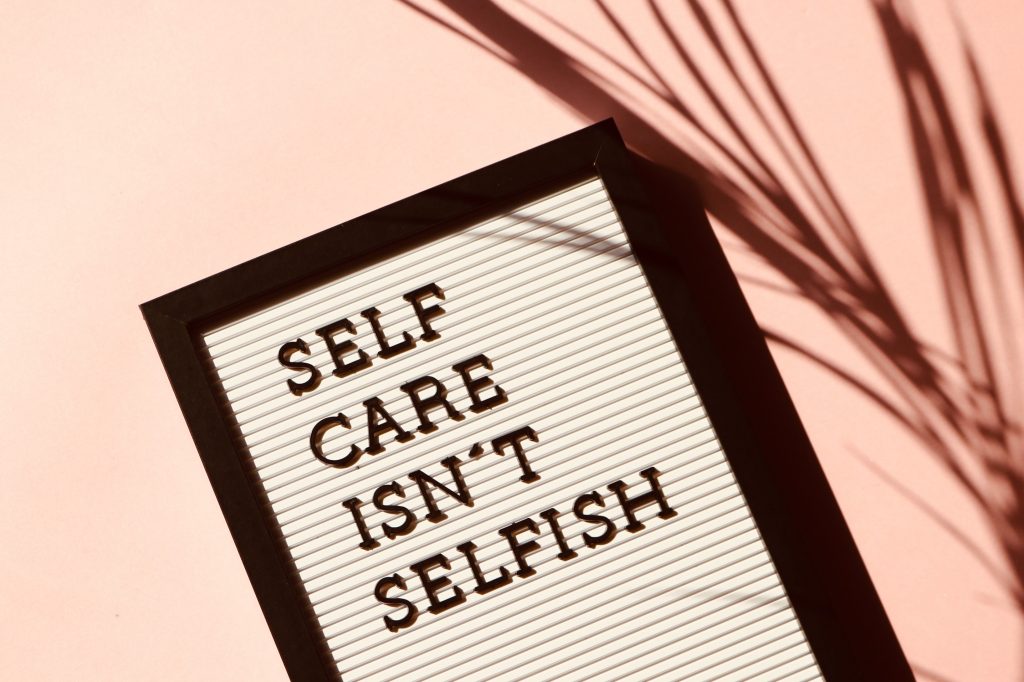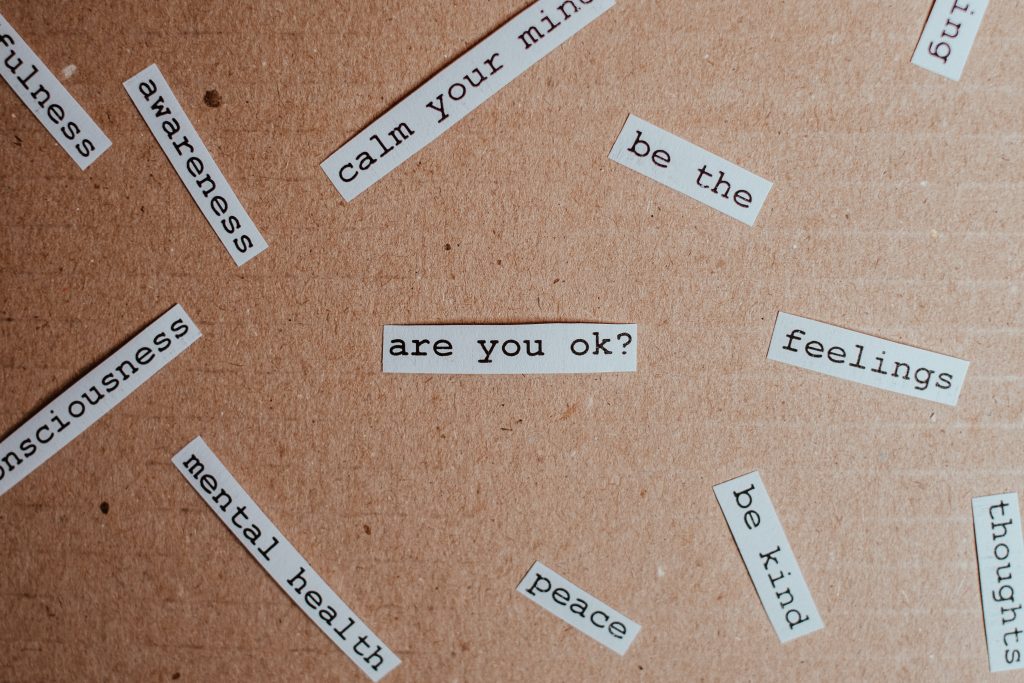Understanding Burnout: Recognizing Signs and Symptoms

In today’s fast-paced world, burnout has become a prevalent concern, affecting individuals across various professions and walks of life. Understanding burnout, including its signs, symptoms, and causes, is essential for prevention and recovery. This comprehensive guide is designed to help you recognize burnout and take actionable steps towards reclaiming your well-being. What is Burnout? Burnout is a state of emotional, physical, and mental exhaustion caused by prolonged exposure to stress. It diminishes an individual’s enthusiasm for work, leading to reduced productivity and a sense of detachment from personal achievements. Recognizing burnout early is crucial for initiating recovery processes. Recognizing the Signs of Burnout Physical Symptoms of Burnout Emotional Symptoms of Burnout Behavioral Symptoms of Burnout Causes Leading to Burnout Burnout stems from a combination of factors: Strategies to Combat Burnout Addressing burnout involves recognizing the need for change and seeking support. Essential steps include: Conclusion Burnout affects mental and physical health, productivity, and personal relationships. Recognizing the signs of burnout is the first step toward healing and prevention. By understanding burnout, individuals can take proactive measures to protect their well-being and maintain a healthy work-life balance. Remember, acknowledging burnout is not a sign of weakness but a critical step in prioritizing your health and happiness. At Zoie Health, we are committed to raising awareness about burnout and supporting individuals in navigating their way back to health. Recognizing burnout and taking timely action can help you lead a more balanced and fulfilling life. About Zoie Health Zoie Health is at the forefront of women’s wellness, offering quality, affordable, and accessible supplements tailored to the unique health needs of women. With a focus on synergy, Zoie Health’s products are designed to work together, providing your body with the comprehensive support it needs to thrive. With our online Zoie Shop and Pharmacy, our unique virtual consultations, and vast communities of women, we strive to provide good quality healthcare to underserved populations. Sources: National Library of Medicine, Beyond Blue, Mayo Clinic
PCOS: Breaking down the Emotional Walls

Today, let’s embark on a delicate journey to discuss a topic close to many hearts – Polycystic Ovary Syndrome (PCOS). Beyond its physical manifestations, PCOS carries a significant and often overlooked mental and emotional toll. It’s crucial to shed light on these shadowed areas and break down the emotional walls surrounding PCOS to foster understanding, empathy, and support for those touched by this condition. Understanding PCOS: PCOS is a common hormonal disorder that affects individuals with ovaries, often during their reproductive years. It’s known for symptoms like irregular periods, excessive hair growth, and infertility. But let’s not forget, the emotional and mental impact of PCOS is profound, affecting aspects such as mental health, self-esteem, relationships, and overall quality of life. Read Here to find out if you might have PCOS The Emotional Landscape: Anxiety and Depression The connection between PCOS and mental health issues such as anxiety and depression is undeniable. Hormonal imbalances intrinsic to PCOS play a significant role in heightening emotional sensitivity, making individuals more susceptible to mood swings and mental health disorders. The struggle to manage symptoms and the often frustrating journey to a correct diagnosis can heighten these feelings. Shop for stress management products here Body Image Concerns PCOS can lead to various physical changes, such as weight gain and acne, significantly impacting self-esteem and body image. This emotional toll may result in a persistent feeling of discomfort and dissatisfaction with one’s appearance, further escalating mental health issues and creating barriers to self-love and acceptance. Relationships and Social Interactions The emotional strain of PCOS doesn’t stop at personal boundaries. It seeps into relationships, often creating tension and misunderstanding as partners grapple with the nuances of the condition. Fertility concerns, a prevalent aspect of PCOS, can also strain relationships, causing feelings of inadequacy and frustration. Breaking Down the Walls Acknowledging the emotional and mental impact of PCOS is the first step towards breaking down these invisible walls. Open conversation, comprehensive healthcare, and robust support systems are vital in this journey. Open Conversation Let’s encourage conversation surrounding not just the physical but also the emotional aspects of PCOS. Creating a safe space for individuals to share their experiences and feelings is so important for emotional healing. Comprehensive Healthcare Healthcare providers must adopt a holistic approach to treating PCOS, considering both physical symptoms and emotional well-being. Mental health support should be an integral component of PCOS management. See how Zoie Health can provide you with comprehensive healthcare here. Strong Support Systems Friends, family, and partners should emerge as informed and empathetic allies. Educational resources and support groups can offer valuable insight and understanding, helping to aid emotional support for individuals with PCOS. In closing, navigating through the emotional terrain of PCOS is unquestionably challenging. Yet, as we break down these emotional walls together, we cultivate a nurturing garden of empathy, understanding, and support. It’s a collective endeavour, where every conversation, every shared story, and every expression of understanding makes a monumental difference. Sources: Mayo Clinic, National Institutes of Health
Mental Health Unlocked: How Yoga Positively Shapes Mental Health

Mental Health Unlocked: How Yoga Positively Shapes Mental Health Hey Superwoman! Feeling like life’s tossing you a few too many curveballs? One thing that’s gotten a ton of attention for being helpful in this department is yoga. And we’re not just talking about weird stretches here – yoga’s got a whole package deal that includes relaxing, controlling your breath, and meditating. Basically, it’s a superpower for making your brain feel better. So, let’s dive into all the great ways yoga helps your mental health and see how this ancient practice can zen you out and help you deal with all that life throws at you. Stress Reduction Alright, let’s face it, adulting can be a wild roller coaster. But Yoga’s the ultimate chill solution. Those twisty poses and serene breaths aren’t just for Instagram flexing; they actually pump the brakes on stress. The secret? The activation of the parasympathetic nervous system during yoga triggers the relaxation response, leading to lower levels of stress hormones like cortisol. Regular yoga practice has been shown to improve overall stress management and increase one’s ability to cope with the demands of daily life. Mental Health and Anxiety Warrior Anxiety, meet your match! Yoga’s the superhero cape your mind deserves. How? Anxiety often stems from the mind’s tendency to dwell on past regrets or future uncertainties. Yoga, with its focus on mindfulness, helps individuals stay grounded in the present moment. By training your brain to stay in the present moment, like a pro mindfulness coach. No more obsessing over that email you wish you’d phrased differently or sweating the future. Enhanced Emotional Regulation Who doesn’t want to be the king or queen of their emotions? Enter yoga, stage left. With a smorgasbord of calming poses and soothing breaths, you’re in for a treat. Ever heard of “Warrior II” or “Child’s Pose”? These aren’t just fancy names – they’re your VIP passes to emotional control. Slow, deep breaths stimulate the vagus nerve, leading to a decrease in the activation of the body’s stress response. This can lead to enhanced emotional regulation, reduced anger, and improved mood stability. Breathe, pose, conquer – it’s like a mental health boot camp, but way more zen. Improve the Quality of your Sleep If counting sheep is your nightly jam, yoga’s about to flip your sleep game. The mind-soothing magic of yoga is like a lullaby for your soul. Incorporating a bedtime yoga routine can prepare the body and mind for restful sleep, reducing insomnia and promoting rejuvenation. Say goodbye to those midnight staring contests with the ceiling – good sleep’s back in town. Shop Sleeping supplements here. Boost your self-esteem and mindfulness Yoga fosters self-acceptance and self-compassion. It’s time to break a mental sweat and boost that self-esteem! Yoga is not just about stretching your hamstrings; it’s about stretching your limits. Every time you nail a new pose, that’s a victory dance for your self-worth. Yoga helps you shake off the self-doubt, embrace your uniqueness, and strut your stuff like the rockstar you are. Cultivate your Resilience Life’s challenges are inevitable, but yoga equips practitioners with tools to navigate them with greater resilience. The meditation and breathing exercises aren’t just fancy ways to sit still, but help individuals develop the capacity to stay centred and calm, even in the face of adversity. This newfound emotional strength translates into improved adaptability and coping skills. So there you have it, fellow wanderer in the chaos! Yoga is not just a trend; it’s a mental health magician. From smacking stress to slaying anxiety, it’s like a one-stop-shop for your soul’s wellness. So, roll out that yoga mat and embrace the quirkiest, twistiest journey you’ll ever take – a journey that’s all about finding peace, strength, and a whole lot of Zen-style self-love. Your mind will thank you, and hey, you might just master that bendy pretzel pose along the way! And if nothing else, you can always chat to a mental health expert here whilst being a fancy contortionist! Sources: American Osteopathic Association, Healthline, Harvard Health Publishing
Chronic Pelvic Pain: 4 Ways To *Really* Manage Your Mental Health

It might not seem obvious, but managing your mental health when you’re dealing with chronic pelvic pain is just as important as the pain itself.
Tools To Help Manage Your Mental Health During Periods Of Social Unrest

How you manage your mental health during periods of social unrest is paramount, especially when things are uncertain.
5 Tips To Help New Mothers Manage Their Mental Health

Bringing new life into this world can be emotionally and physically taxing for new mothers, impacting their mental health.

